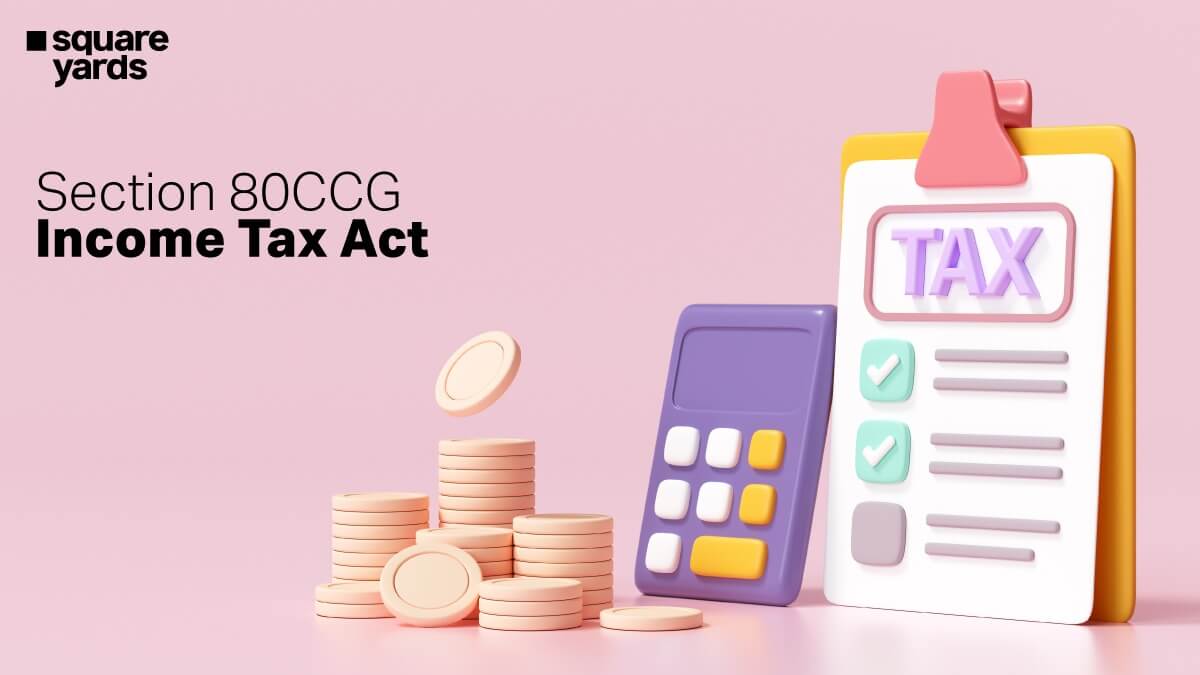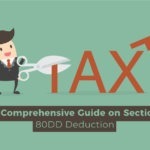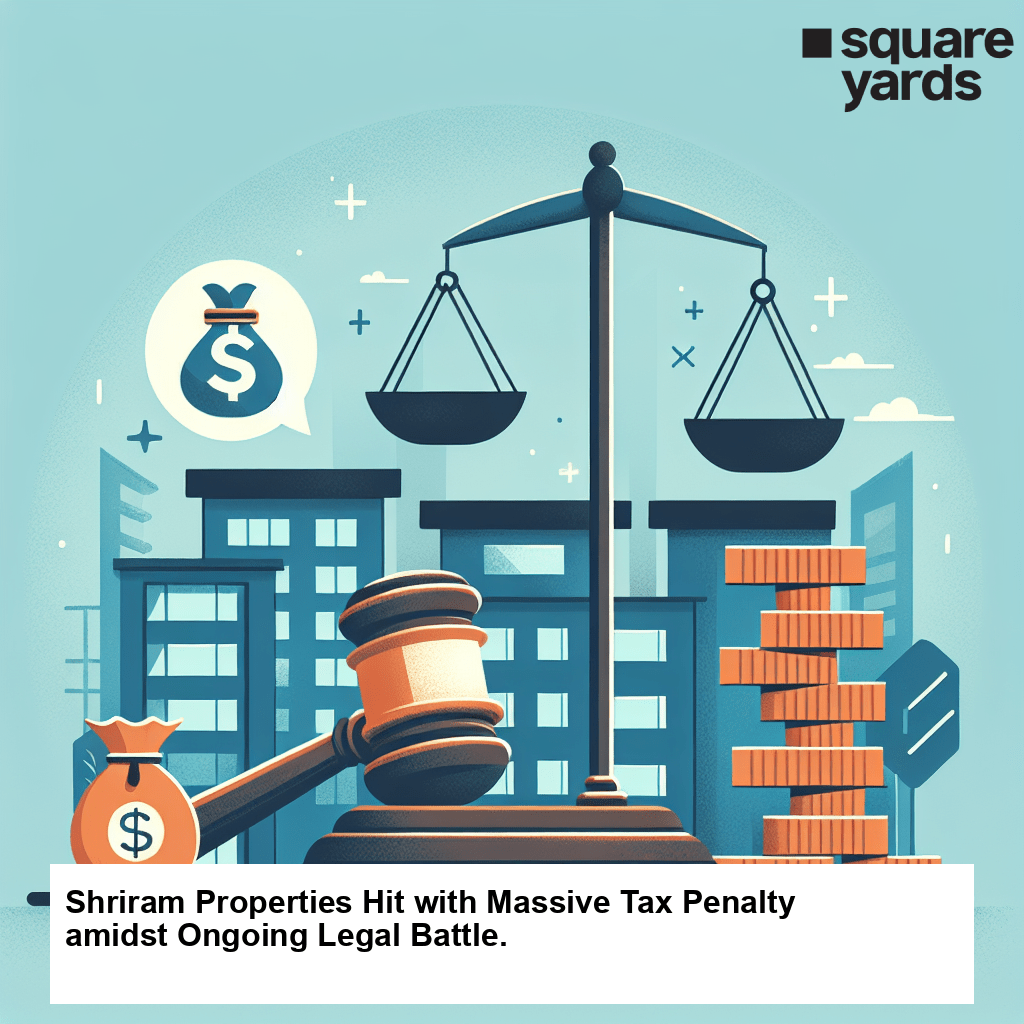The Indian government levies a tax on every income earned in India (excluding agricultural revenue) to support the government budgets. The Income Tax Department introduced section 80CCG to enable Indian citizens to lower their tax burden. This act is commonly referred to as the Rajeev Gandhi Equity Saving Scheme, designed to benefit investors. The goal of this scheme is to increase private investor savings, which will improve the country’s local financial market.
This deduction procedure is aimed at online investing plans. It allows people to save money on taxes with associated advantages.
Table of contents
Section 80CCG of the Income Tax Act
Section 80CCG, ITA(Income Tax Act) addresses incentives to provide tax deductions to acceptable customers. These deductions are accessible to taxpayers one’s invest in India’s equity plans through the 80CCG market for the goal of capital growth.
This scheme was introduced to the ITA to motivate people to put additional funds into investments such as shares, and equity ETFs. To do this, the original investors were given significant tax breaks.
The 80CCG scheme is also called the Rajiv Gandhi Equity Saving Scheme. It will assist in building up the foundation of traders who put funds into Indian assets. As well as this will foster an environment that encourages safety and financial accessibility.
Section 80CCG: Deduction of Funds
Income Tax Act, Section 80CCG specifies that deductions of tax covered by it are accessible to initial equity market participants with an appropriate Demat Account. As per the law, Investors one’s have not engaged in any option or equity operations are also eligible for 50% investment expenses. However, the maximum amount for which such deductions can be claimed is ₹ 50,000.
For example: Assume Neha is a beginner investor who wishes to put funds into stock, ₹ 50000. This is because it is Neha’s first investment, and she is entitled to a 50% of tax deduction. Additionally, her taxable investment sum will be ₹550000. Moreover, with the total available amount deduction of ₹ 25000, her taxable income will be ₹ 525000.
Eligibility of Section 80CCG
The Central Government has established particular requirements that applicants must meet to claim advantages under the 80CCG.
- Section 80CCG perks are available to first-time investors
- An investor should have at least an annual income of 12 lakhs
- Investments ought to be made in equity shares via equity-based funds
- Stocks should be listed on the BSE 100 or CNX 100. This method applies to even public enterprises
- This plan is open to investors in mutual funds and exchange-traded funds (ETFs)
- An applicant should have a Demat account
- This scheme enables a maximum investment of ₹50,000 with a 50% of deduction
- The lock-in period of the investment is a minimum of three years
Document Required
For qualified investors, Section 80CCG demands simply a few basic documents. They are listed below.
- Demat account documents
- PAN Card
- Furnished Form B
Features and Benefits of Section 80CCG of the Income Tax Act
- Tax Deduction: Section 80CCG allows for up to a 50% tax deduction on a maximum stake of $50,000 in the equities market. In this situation, you can claim a tax break of up to 25,000 in every tax year.
- Tax Perks of 3 years: Initially, shareholders may get profit from tax breaks for three years, only if they invest their money in the Indian equities market. Also, 50% of the tax credit is authorized for three consecutive years, allowing one to invest a total of $75,000. As a result, any withdrawals made from the savings during those three years will immediately revoke one’s tax benefits.
- Decrease Risk: Section 80CCG not only focuses on the importance of investing, saving and contributing to the country’s national equity market. But it also provides first-time investors with more secure investment alternatives with lower risk. Moreover, the lock-in period is also adjustable to the investor’s preferences.
- Savings and Stability: Section 80CCG provides complete information for individuals new to the banking industry of investments. And, guide them to start their financial path in a more secure and less risk-prone environment. It also allows prospective investors to invest in a safer environment.
Eligible Investments Under Section 80CCG
Investors are eligible for Section 80CCG deductions for subsequent investments.
- Maharatna Investments: This scheme refers to non-human organisations such as businesses, institutions, and organisations that can make investments of up to 5,000 crores/15% of their net value in a single initiative. Such as Coal India Ltd, Indian Oil Corp. Ltd., Oil and Natural Gas Corp. Ltd., Bharat Heavy Electricals Ltd, Gail (India) Ltd, etc.
- Navratna Firms: These organisations allow to invest up to ₹1,000 crores in a specific project like NLC India Ltd, Bharat Petroleum Corp. Ltd, Engineers India Ltd, Hindustan Petroleum Corp. Ltd, etc.
- Miniratna Investments: In this scheme, firms are approved for those who can afford to invest 500 crores or their whole net worth in a project, for example, Bharat Dynamics Ltd, Central Warehousing Corp, Hindustan Copper Ltd, Cochin Shipyard Ltd and more.
- ETFs and Mutual Funds: Mutual Funds, commonly known as MFs, and ETFs, which represent Exchange Traded Funds, qualify as assets that can be used to obtain the deductions and advantages of Section 80CCG.
Wrapping UP
Section 80D of the Income Tax Act provides a significant taxing framework and assistance to taxpayers. However, if you want more in-depth information, contact an expert. A tax specialist will be able to better help you because of their knowledge and experience.
You May Also Read:
FAQ’s
What can be claimed under 80CCG?
Units of ETFs, Shares of Navratna, Equity-based mutual fund schemes, securities of the BSE-100/CNX100, Maharatna or Miniratna scheme can claim under 80CCG.
Is 80CCG still valid?
Yes, 80CCG is still valid for up to ₹50,000 of investment.






























































